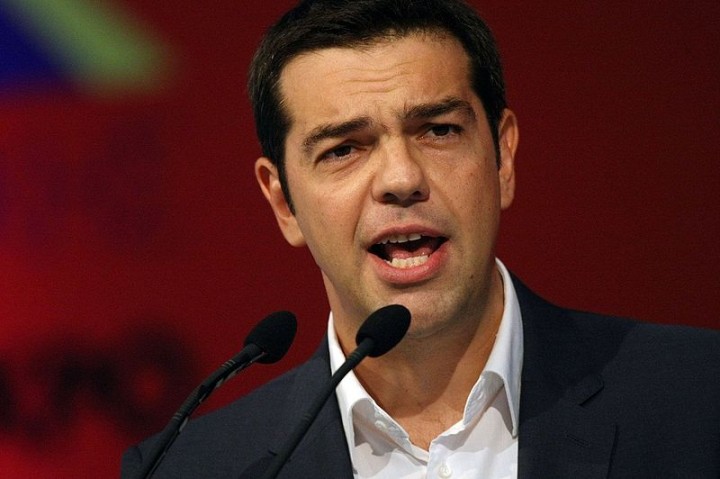Hundreds of Greek pensioners and workers have staged rallies in the capital, Athens, against the government’s plan to overhaul the country’s pension system.
On Friday, hundreds of public sector workers and pensioners marched in the city center in protest against the country’s pension reforms demanded by international lenders in return for rescue funds.
About 100 supporters of the Communist-affiliated trade union PAME also protested outside the office of Prime Minister Alexis Tsipras, holding a banner that described the plan as “a guillotine for the pension system.”
Tsipras has said the pension system is on the verge of collapse but stressed that reforming it will challenge his resolve to implement measures demanded by Greece’s international creditors, who must sign off on the plan.
One of the protesters who took part in the rallies slammed the Greek government, saying, “The government tricked the workers and the farmers into thinking that it will create a better society with more justice and less unemployment.”
The protests turned violent briefly when the crowd broke past a line of police in riot gear and headed towards Tsipras’s office. Police responded with tear gas.
The rallies were the latest in a series of protests against the austerity cuts Greece has imposed over the years in return for rescue funds.
The Greek Labor Ministry is also working on a new system under which state-guaranteed pensions will be reportedly cut by half – to a minimum of 384 euros – and the rest will depend on a person’s income and years of social security payments.
In November 2015, the administration of Tsipras approved a law scrapping most early retirement benefits, raising the retirement age and increasing contributions for healthcare.
The legislation also includes plans to overhaul the country’s pension system, merging several pension funds into one and reducing supplementary pensions.
The regulation was passed in exchange for a three-year, 86-billion-euro (93-billion-dollar) bailout that Athens accepted recently from its creditors – the European Commission, the European Central Bank, and the International Monetary Fund – to save the Mediterranean state from crashing out of the eurozone.
Last July, the government of Tsipras agreed to the demands for austerity measures by lenders in exchange for the multi-billion bailout deal.
The decision triggered outrage from Greeks, who argue Tsipras came to power in January 2015 on an anti-austerity platform. Greece has already received two bailouts in 2010 and 2012, worth a total of 240 billion euros (USD 272 billion) from its creditors following the economic crisis in the European country back in 2009.






